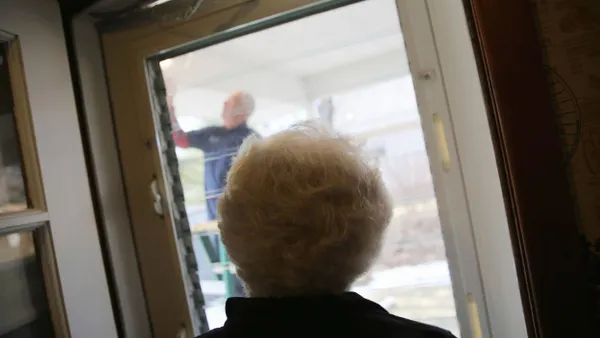Dive Brief:
- The U.S. Department of Energy plans to comply with a court order to publish four delayed appliance efficiency standards, an agency spokesperson told Utility Dive Tuesday.
- Clean energy advocates say the standards will save consumers and businesses $8.4 billion over the next three decades.
- The U.S. Court of Appeals for the Ninth Circuit in San Francisco reached its decision in October, and on Monday isssued a mandate directing the standards to be published in the Federal Register within 28 days.
Dive Insight:
Since the Trump administration began, there has been scant good news for energy efficiency advocates. The recent court win on appliance standards is "one bright spot," said Lauren Urbanek, senior energy policy advocate at the Natural Resources Defense Council.
NRDC filed the lawsuit to force DOE to publish the new standards, and was victorious in 2018. DOE appealed the first loss, but has indicated it will not move forward with an en banc appeal to the 9th Circuit or plea to the U.S. Supreme Court.
"Barring any further mischief, [the new standards] should be published by the end of the year," Urbanek told Utility Dive. "This is a win for consumers and the environment."
The four standards, which cover portable air conditioners, uninterruptible power supplies, air compressors and commercial packaged boilers, are estimated to avoid nearly 100 million tons of carbon emissions over the next 30 years, according to NRDC.
They were finalized by the Obama administration, but a 45-day review period left them for the Trump administration to publish.
Trump's DOE has missed 18 deadlines to review standards, and has undertaken rulemakings that advocates say are designed to slow efficiency improvements in other areas as well. Light bulb efficiency standards and product testing waivers, for example, have also been the subject of rulemakings by DOE.
DOE's appliance efficiency program has traditionally been a bipartisan affair, saving consumers trillions of dollars, Urbanek said.
The department is required to review appliance standards about every six years, "so the standards are not outdated and consumers get access to technology if it's found to be cost effective," she said. Appliance efficiency standards "have historically been just common sense."
Those standards are "the single most effective federal policy to save energy," Lowell Ungar, senior policy advisor to the American Council for an Energy-Efficient Economy, told Utility Dive, adding that DOE's efforts are causing lasting harm.
"DOE is not only not using the better technologies, but is actually going backwards and that's just going to cost consumers," he told Utility Dive.
NRDC's legal team received notice that DOE sent the rules to the Federal Register on Tuesday for publication. They should have been published almost three years ago, said Urbanek, "but better late than never."














